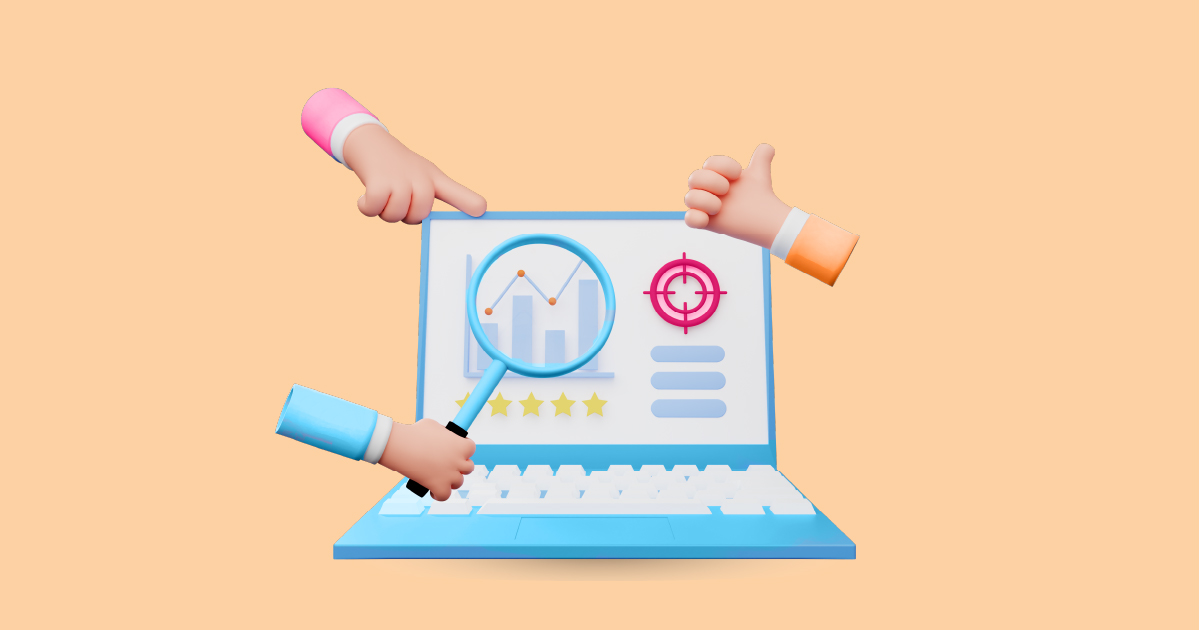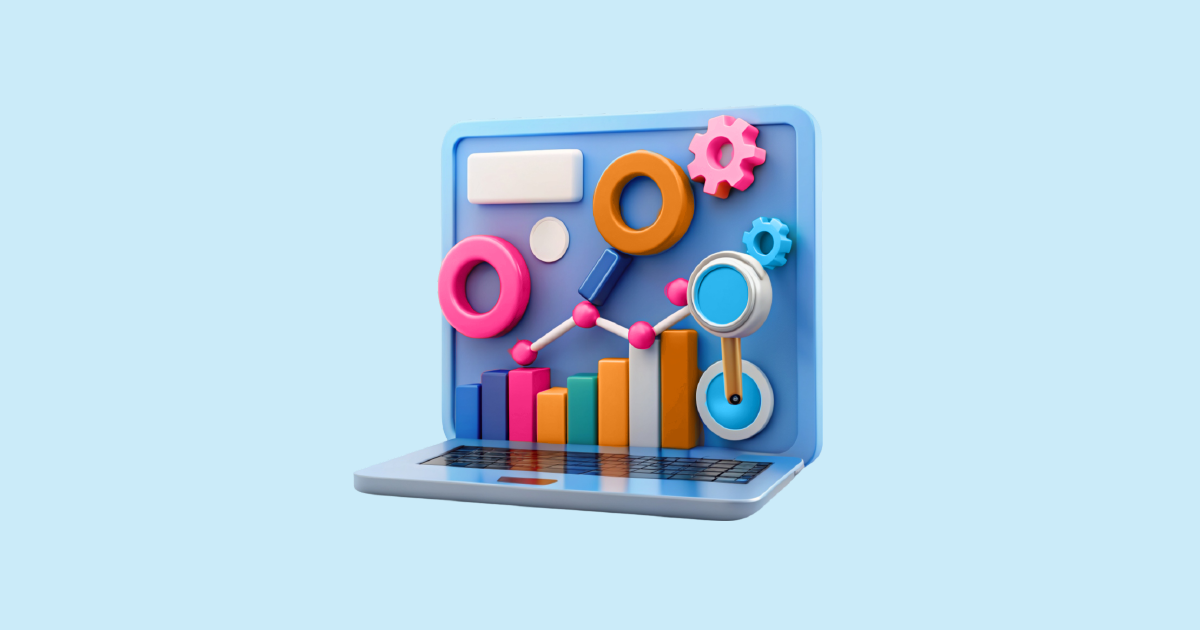In today’s digital age, social media has become an integral part of our daily lives, both personally and professionally. With millions of users actively engaging on social media platforms like Facebook, Instagram, Twitter, blogs, forums, and LinkedIn, it has become imperative for businesses to monitor social media channels. But why is monitoring social media activity so crucial?
Benefits of Monitor Social Media Activity

With a growing number of social media monitoring tools available, choosing the right tools for 2024 is essential. This involves assessing your needs in areas like user-generated content performance and identifying tools that integrate well with your social media platforms, including news sites where your brand might be mentioned. It’s important to select tools that align with your business goals for social media monitoring and offer features like sentiment analysis, real-time alerts, and the ability to track relevant hashtags and keywords.
1. Brand Reputation Management
One of the primary reasons for monitoring social media is to manage and maintain your brand’s reputation. By actively monitoring what people feel about your brand, products, or services, you can address any negative feedback or complaints promptly, safeguarding your brand’s image. Tools that integrate a smart inbox feature can help streamline this process by consolidating mentions and messages into one easy-to-manage dashboard.
2. Customer Feedback and Insights
Social media monitoring provides valuable insights into customer preferences, opinions, and sentiments. By analyzing mentions comments and conversations, businesses can gain a deeper understanding of their target audience and tailor their products or services accordingly, improving customer service.
3. Competitor Analysis
Monitoring social media activity also allows businesses to keep tabs on their competitors. By tracking competitor mentions, campaigns, and engagement levels, companies can identify gaps in the market and capitalize on new opportunities.
4. Crisis Management
In the event of a crisis or negative publicity, social media monitoring can be invaluable. By promptly detecting and addressing potential issues, businesses can mitigate reputational damage and restore customer trust.
Frequently Asked Questions (FAQs)
When setting up social media monitoring, businesses often have frequently asked questions around how to select the best tools, what metrics to monitor, and how often to check for updates. Addressing these FAQs and having a clear monitoring strategy in place can simplify the process and ensure effective implementation.
Social Media Monitoring Tools
There are numerous tools and platforms available for social listening tool, ranging from free to paid options. Popular tools include AIM Insights, Sprout Social, Buffer, and Mention. Selecting a social media monitoring platform with features that align with your business needs, such as social media management tools or sentiment analysis, is essential for effective monitoring.
Setting Up Social Media Monitoring
Before embarking on social media monitoring, it’s crucial to define clear goals and objectives. Whether it’s improving social media strategy, brand awareness, increasing customer engagement, or tracking competitors, having a clear strategy in place will guide your monitoring efforts. Additionally, selecting relevant keywords, hashtags, and platforms for monitoring is essential to ensure you capture relevant conversations and share of voice.
Monitoring Techniques and Strategies
Social media monitoring can be done in real-time or at scheduled intervals, depending on your objectives and resources. Real-time monitoring allows businesses to respond promptly to customer inquiries or complaints, while scheduled monitoring enables comprehensive analysis of trends and patterns over time. Sentiment analysis tools can also help businesses gauge the overall sentiment surrounding their brand or industry.
Interpreting Social Media Data
Once you’ve gathered social media data, the next step is to analyze and interpret it effectively. Understanding key metrics such as engagement rates, reach, and sentiment can provide valuable insights into your audience’s preferences and behavior. By identifying industry trends and patterns in the data, businesses can make informed decisions and tailor their marketing strategies accordingly.
Responding to Social Media Activity
Engaging with your audience is crucial for building brand loyalty and fostering positive relationships. Whether it’s responding to mentions comments, thanking loyal customers, or addressing negative feedback, timely and personalized responses can go a long way in enhancing your brand’s reputation. It’s essential to handle negative feedback with empathy and professionalism, turning potentially damaging situations into opportunities for growth and improvement.
Case Studies: Successful Social Media Monitoring
Numerous companies have successfully leveraged social media monitoring to enhance their brand reputation, drive customer engagement, and gain a competitive edge. For example, Starbucks actively monitors social media mentions to identify customer preferences and trends, allowing them to tailor their product offerings and marketing campaigns accordingly. Similarly, Airbnb uses social media monitoring to detect and respond to customer feedback, ensuring a positive user experience.
Best Practices for Effective Social Media Monitoring
Consistency is key when it comes to social media monitoring. Establishing regular monitor conversations and workflows will ensure that no important conversations or mentions slip through the cracks. Additionally, businesses should continuously evaluate and refine their monitoring strategies to adapt to changing trends and technologies. It’s also essential to prioritize data protection and privacy considerations to safeguard sensitive information and comply with regulations.
Challenges and Pitfalls
Despite its benefits, social media monitoring comes with its fair share of challenges. Information overload can make it challenging to filter through vast amounts of data and extract meaningful insights. Ensuring the accuracy and reliability of the data collected is another common challenge, as social media conversations can be subjective and context-dependent. Keeping up with changing trends and algorithms on social media channels can also pose difficulties for businesses aiming to stay ahead of the curve.
Future Trends
Looking ahead, advancements in artificial intelligence and machine learning are poised to revolutionize social media monitoring. AI-powered tools can analyze vast amounts of data in real time, providing businesses with actionable insights and predictive analytics. Integration with other business functions such as customer relationship management (CRM) systems and marketing automation platforms will further streamline processes and enhance efficiency. Personalization and customization will also become increasingly important, allowing businesses to deliver tailored experiences to their audience based on their preferences and behavior.
Conclusion
In today’s fast-paced digital landscape, monitor social media activity has become indispensable for businesses looking to stay competitive and maintain a strong online presence. By leveraging the right tools and strategies, companies can not only manage their brand reputation effectively but also gain valuable insights into customer behavior and market trends.
As businesses continue to recognize the importance of social media in their overall marketing strategies, effective monitoring will remain a cornerstone for success. By staying proactive, responsive, and informed, businesses can harness the power of social media to build stronger relationships with their audience and drive sustainable growth.
Are you ready to take your social media monitoring to the next level? Contact us today for a demo of AIM Technologies’ cutting-edge monitoring and listening solutions.
FAQs
How often should I monitor social media activity?
- It’s recommended to monitor social media activity regularly, ideally daily, to stay updated on conversations and mentions related to your brand.
What are some free tools for social media monitoring?
- Some popular free tools for social media monitoring include Google Alerts, Social Mention, and TweetDeck.
Can social media monitoring help in lead generation?
- Yes, social media monitoring can help identify potential leads by tracking relevant conversations, hashtags, and mentions related to your products or services.
How do I measure the success of my social media monitoring efforts?
- Key metrics for measuring the success of social media monitoring efforts include engagement rates, sentiment analysis, and the number of mentions or impressions generated.
Is it necessary to monitor social media activity for small businesses?
- Yes, monitoring social media activity is crucial for small businesses to stay connected with their audience, manage their brand reputation, and identify growth opportunities.




